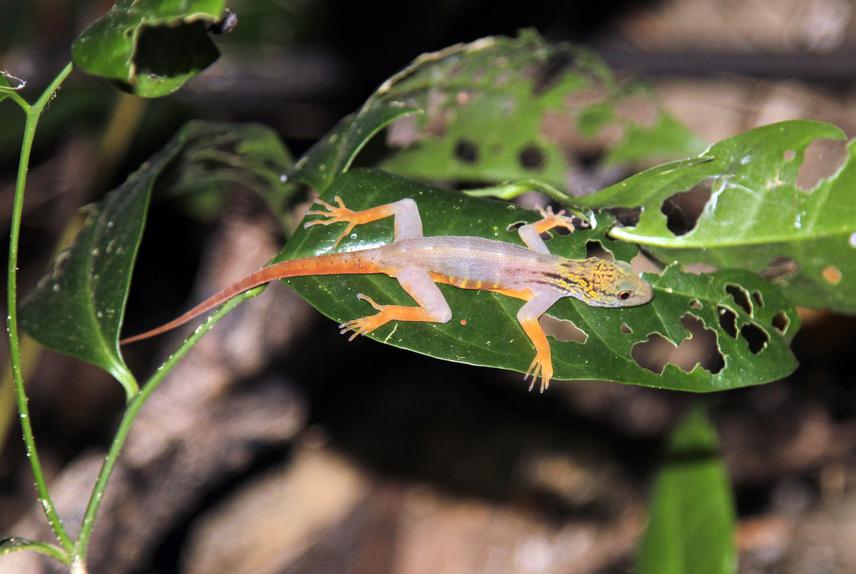Truong Quang Nguyen
Other projects
20 Jan 2014
Evolution on Limestone Karst: A Case Study on the Diversity of the Herpetofauna in Northewestern Vietnam
This project aims to assess the population status and ecological characters of Cnemaspis psychedelica in Vietnam as a basis for implementation of the follow up conservation measures in order to protect this species from extinction.

Cnemaspis psychedelica.
Cnemaspis psychedelica was recently described in 2010 and certainly belongs to the most spectacular gecko discoveries in a world wide scale. This species is currently known only from Hon Khoai Island, 18 km off the southern tip of the Ca Mau Peninsula, southern Vietnam. The diurnal species lives on large granite boulders in the shade of the forest canopy. As Hon Khoai Island is a small island, with ca. 8 km² surface, the population size of C. psychedelica is likely to be very small. The species is threatened by extinction and a major threat to its population is poaching and illegal trade with very high prices (2500-3000 Euro/pair) in European countries. This project aims to assess the population status, ecological characteristics, and threats to C. psychedelica on Hon Khoai Island.
A 20-day field survey will be conducted on Hon Khoai Island in 2016 for collecting morphological characters and ecological data of C. psychedelica. Age classes and population structure also will be determined based on the size of the geckos. Population size will be calculated using mark-recapture method. Threat evaluation will be obtained through direct observation and interviews with local people and staff from the Forest Protection Unit on the island. Subsequently, species evaluation and conservation needs will be assessed according to the IUCN Red List categories and criteria and guideline of CITES.
The follow up in-situ and ex-situ conservation measures will be taken place in cooperation with local authorities of Ca Mau Province, the Cologne Zoo from Germany, and the Wildlife at Risk in Ho Chi Minh City, including habitat protection, population maintenance, awareness activities, and developing a breeding conservation program.